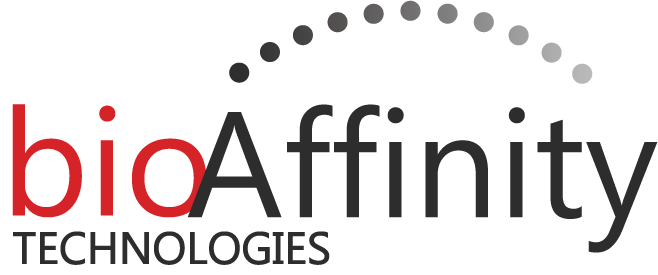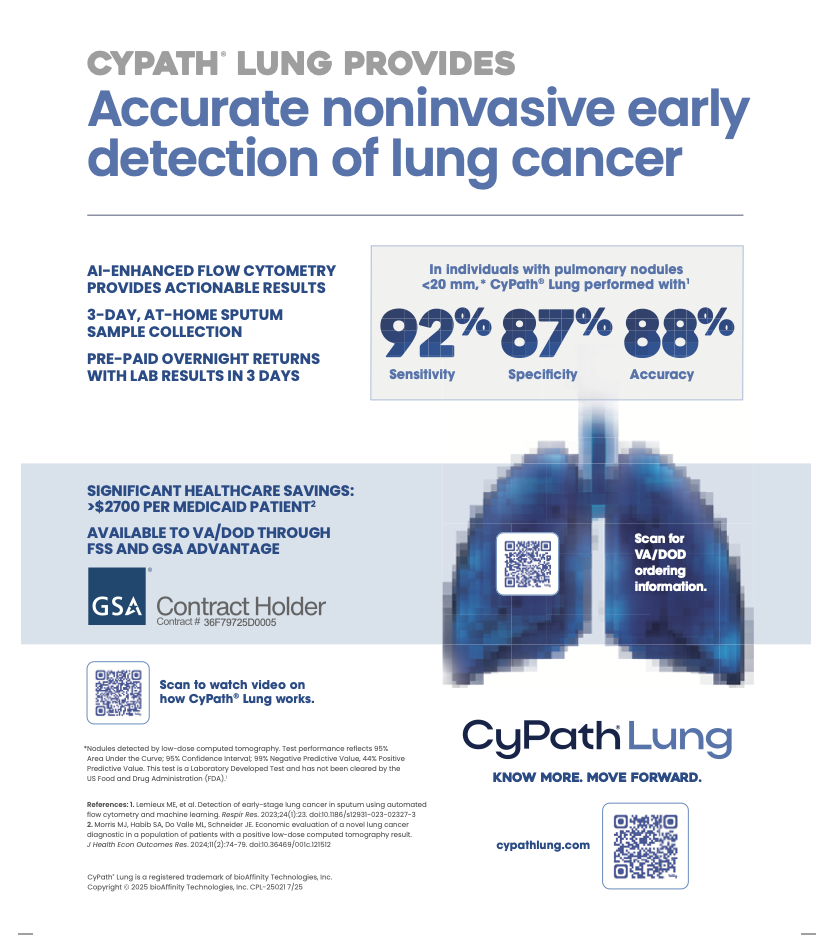SEPTEMBER 24, 2020
Originally published in Medical Design & Outsourcing by Sean Whooley.
Maria Zannes and her company BioAffinity Technologies are seeking to up the game on lung cancer detection. Here’s how.
Maria Zannes’ path to a leading role in the medtech field wasn’t quite a conventional one.
The one-time aspiring journalist carved out a role on Capitol Hill, first as an aide, then as a lobbyist, plus a stint running a trade group. During all that, she managed to pick up her law degree, too.
However, when her brother was diagnosed with what ended up being a fatal case of glioblastoma, Zannes left Washington, D.C., for New Mexico. There, she came across a technology that had come out of Los Alamos National Laboratory which used certain compounds to label cancer cells, piquing her interests both on a personal and professional level.
Zannes has now been involved in this technology for 10 years or so, developing a test for early lung cancer, and with plans to commercialize the noninvasive test this year.
Zannes spoke to Medical Design & Outsourcing recently, discussing her background, her company, BioAffinity Technologies and its work, plus being a woman in medtech.
Following her time in the nation’s capital and while with her brother in New Mexico, Zannes learned about a certain porphyrin compound at Los Alamos that, when used to label cancer cells, it fluoresced “20 times more bright” than normal cells.
“It was this very unique and quite exciting label,” Zannes said. “And Los Alamos was doing work with sputum, the mucus that comes from our lungs. They were labeling that mucus and they found that they could tell the difference between people who had lung cancer and people who did not by the presence of these bright red cells, these bright red cancers. You can understand, both personally and professionally, why I was so excited.”
“And Los Alamos was doing work with sputum, the mucus that comes from our lungs. They were labeling that mucus and they found that they could tell the difference between people who had lung cancer and people who did not by the presence of these bright red cells, these bright red cancers. You can understand, both personally and professionally, why I was so excited.”
BioAffinity’s work with the technology has led to the CyPath Lung, a non-invasive test that Zannes said is accurate in finding early-stage lung cancer. Just last month, the X-employee company announced the start of Clinical Laboratory Improvement Amendments (CLIA) validation.
The company’s test uses flow cytometry to profile the cancer environment and, in a trial of people at high risk for lung cancer, it could determine the difference between cancer and non-cancer with 92% sensitivity and 87% specificity, Zannes said.
“We are not a genetic-based test,” Zannes said. “We are not looking for any particular mutation, and we’re stronger for it, particularly in the early cancer detection field. That’s because, in looking at cancer’s environment and in understanding these cell populations and the certain parameters or biomarkers that differentiate people who are at high risk for lung cancer — who have cancer and those who do not have cancer — understanding that environment can be key.”
Zannes expects the sales to begin later this year, with further trials intended down the line.
“It is a different approach,” she said. “It is innovation that comes from a diverse workplace. It is looking at the problem and saying, ‘We’re not going to go necessarily with what others have done.’”
Hope for the future
Throughout her experiences in multiple fields and multiple locations, Zannes has navigated her way to a position in the C-suite as a woman and as a single mother. She believes it remains a challenge for women to reach that point, not just in medtech, but across all industries.
“I don’t know of an industry that isn’t male-dominated,” Zannes said. “So, it’s hard. It’s not unique in that regard. I mean, I’ve worked for many years, as I said, more than 20 years in the energy and the environmental engineering — think scientific — arena, and it was similarly very male-dominated, actually very white male-dominated, which is much of society. I think you just persevere in all of it.”
Establishing oneself in these roles as a woman or as a minority may be challenging, but Zannes said she believes that, as generations go on, women are becoming bolder and more aggressive, and that bodes well for the future of these male-dominated spaces.
“We need to have more women,” Zannes said. “We need to have more minority candidates. We need to have more diversity in business. I think our company is very diverse, and we’re so much stronger because of that. Especially in the science realm, because you’re looking for innovation, right?
“You want to discover new things and that takes a variety of perspective and collaboration. So, I think that that becomes extremely important and the companies that have that, I think, do much better.”

